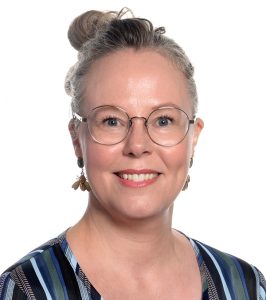Libraries
General:
Our libraries have a flexible self check-out and check-in system, which gives students an opportunity to borrow books outside of their library time. Loans are generally for 40 days but can be renewed. As ISB expands, the main library will become much bigger, making space for even more books for our reading enthusiasts – students and teachers!
Reading at ISB:
Reading contributes positively to children’s development by improving concentration, vocabulary and communication skills, and by reducing stress and promoting creativity and imagination. At ISB, we encourage children to learn more about their interests – and about themselves – by reading things they enjoy.
At ISB, teachers and librarians focus on the following to create a desire for children to read more:
- Every week, children have 1 hour in their schedule, where they are encouraged to immerse in a book of their choice. In Danish lessons, students are also encouraged to find Danish literature to explore.
- Our self check-out and check-in system allows students to also use their free-time to find books at their own pace.
- Our librarians create displays where the book covers are visible for the children and use transparent boxes to exhibit the books.
- Our librarians also create small exhibitions highlighting cultural celebrations and special occasions such as Christmas, Eid, International Women’s Day, National Pet Day etc.
- The multi-lingual section of the library gives a home to books in many languages encouraging students to read in their home language and to be curious about other languages.
- Literature representing cultures from around the world and different ways of life are proudly displayed.
- Our librarians always help students find books that represent students’ identities and mirror their experiences. They also encourage students to read about other representations than their own.
- Our librarians add to the fun by making book challenges that both students and staff can participate in.
Some primary classes are paired up as ‘reading buddies’. It’s a great way for the students to socialise with other classes and read in a playful way. The homeroom teachers arrange activities for these ‘buddies’ throughout the year.
Our philosophy:
The ISB library is about the joy of reading, finding information, critical thinking, curiosity, and inspiration. We have literature in different languages and literature representing cultures from around the world and different ways of life.
As IB learners we aim to be reflective, open-minded, knowledgeable thinkers, and our book collection is a reflection of this. The ISB library has an ever-growing collection of books to support classes’ units of inquiry, but also a lot of books that both students and teachers never knew they needed!
In some books people use ‘inappropriate’ language, commit crimes, or are generally pessimistic: these are reflections of real life, but that does not mean they are ‘words to live by’. Literature is an art form and we should read to enjoy it, but also reflect on what we are reading. This is especially important when we read books from another time which might include words that are outdated or even cause offense in our contemporary lives. On this note, we highly encourage parents to talk with their kids about what they are reading!
A note on Danish children’s literature:
The Danish books we have at ISB are books that you can find in any public library in Denmark – and in any school library, for that matter.
Sometimes Danish books will include swear words. Again, this is not meant to teach children that it is fine to swear, but to reflect the lives of some real children. Sometimes children come to me in the library to ask about this and tell me how they find it inappropriate. In these cases, we talk about how books are not necessarily ‘words to live by,’ and I tell them, “read it, don’t repeat it”.
More often, though, they will talk to me about the books they loved, and how they were inspired to read more, how a book made them reflect, made them laugh or even made them angry. That is the power of literature.
